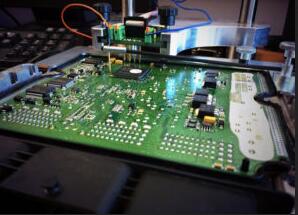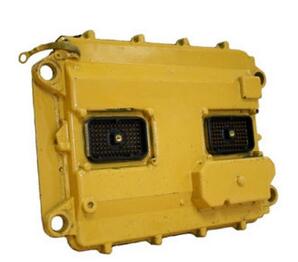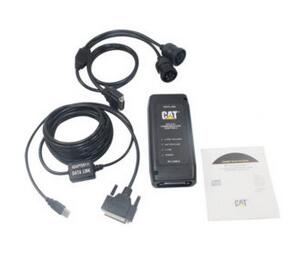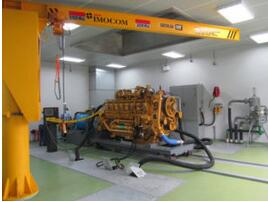Electronic engines get a bad rap in the heavy duty diesel engine world due to the amount of issues that can go wrong with them. However, the good news is that if you have an electronic Caterpillar engine you can easily obtain more horsepower and torque via the ECM.
Re-rating an engine is an electronic process of powering up or down the default horsepower via the electronic control module (ECM). Re-rating a diesel engine is the easiest way to beef up an engine without digging into the hard internal parts. You can do modifications to the engine by changing out the pistons, injectors, the camshaft or damper. Adding an updated turbo is also another way to increase HP. However, these modifications are expensive and may not work as required which we will discuss later in this article.
To re-rate a CAT engine one must go to a CAT Dealer or Independent Certified CAT Distributor that has access to CAT Caterpillar ET (Electronic Technician) program. The CAT ET software will plug into the engine and get a diagnostic readout of the engine health. Once in CAT ET the ECM can be “flashed” or reprogrammed to power up or down within a given CAT Engine Family. You can only repower a Caterpillar engine within its given family.
CAT ECM Example Caterpillar ECM
For example a Caterpillar C7 has Families A, B, C, D, E and F. The Horsepower Rating ranges from 207 hp to 330 hp. Family A only has 3 horsepower and torque options whereas Family E has 7 options. If your engine serial number prefix is rated “A” then you must stay in the A Family. The pistons and injectors are different for each Family. It is impossible to simply go up a Family. The higher horsepower E and F Families are reserved for Fire Truck or RV Applications. So if you’re thinking you can easily increase your engine 200-300 HP you are mistaken.
There are two main way to determine the current horsepower rating of your engine. One is by simply looking at the data tag on the valve cover or timing cover. It will have the horsepower and torque rating of the engine. If you suspect the engine may have already been powered up or down from the original OEM specs you have two options: take it to a dealer or dyno testing facility. A CAT Dealer with CAT SIS and CAT ET will be able to plug into the electronic engine and they can do an ECM Download. This process takes about 5 minutes and will give a readout of fault codes, millage, current horsepower rating, torque, oil pressure etc… A dealer generally won’t charge you just for an ECM Readout. You can also have a full dyno test done which will give a full range of performance specs done on the engine.
Other things to consider when doing an ECM re-flash is whether or not the transmission is rated to handle the increase torque load. Transmissions are all about torque rating. An Allison, Eatonor Fuller Transmission all have something called the Nominal Torque Capacity Rating. Whatever that number is multiply it by 100 to get your maximum torque output allowed for that transmission. For example if a transmission has a tag number of RTO – 11909MLL the “11” or first number, is your Nominal Torque Capacity. That engine would be rated at 1100 ft/lbs of torque. Before doing a re-rating you must check to see if your transmission can handle the new workload. If your desired re-rating torque measurement is higher than your transmission’s capacity to handle the load then you will destroy your transmission.
Aftermarket Engine Modifications
CAT ET Adapter Kit CAT ET Adapter Kit
Earlier in the article we touched on doing aftermarket modifications to your CAT engine. We here at Capital Reman build our engines to OEM spec. We do that simply because playing in the “modification sandbox” can cause numerous issues with warranties. If you add aftermarket injectors, turbos, camshaft or manifolds to increase power it will automatically void any manufacturer warranty. The question is do aftermarket mods work? The answer is that they do indeed work and are the same quality as OEM these days however one must be careful tinkering with electronic engines as mods can overload various systems on the engine. Doing modifications can also decrease the life of the engine as it usually means increased exhaust temperature. If you are burning more fuel and creating more exhaust it will wear down the exhaust valves much faster. Aftermarket turbos can also clog easier when paired with an electronic engine with a SCR or DPF Filter. Some CAT Engines have turbo regeneration issues caused by the very intricate balance of re-circulated exhaust gasses by the emissions systems.
Some opt to further optimize their engine by seeking out illegal DPF Delete Kits to remove all emissions technology altogether. It is understandable why some go down that path as early emissions technology was prone to costly maintenance and performance issues however, newer engines with emissions upgrades actually have increased in horsepower and torque. If you do go down the aftermarket route just be aware that the warranty will be voided, performance upgrades are not a guarantee and that you might be further damaging/decreasing the life of your engine. Not to say aftermarket mods aren’t fun! There are tons of great aftermarket companies that make performance turbos, injectors, camshafts and more but get your pocket book ready as internal mods are expensive.
ECM Reflash Costs and Warnings
CAT Engine on DynoRe-flashing an ECM takes about 2 hours from start to finish at a CAT Dealer. The software is accessed via CAT ET and a flash file is downloaded to the ECM. This software is propriety to Caterpillar and is password protected. BUYER BEWARE! There are aftermarket CAT ET programs on for sale on the internet but none of them will work properly as the software needed is password protected at Caterpillar dealer. CAT Corporate charges the dealer about $250 per ECM Re-flash and the dealer will usually just charge labor to you the customer. Overall the cost of an ECM Re-flash is around $500. Not too bad to quickly power up your engine. If you go down the aftermarket/mods route for the ECM use a reputable Re-Power Company like Pittsburgh Power or ECM Diesel.
There are some dangers of ECM Re-Ratings. About 1/30 ECM Re-Flashes ends up with a destroyed ECM. The ECM can become corrupted or simply wipe itself of all data. The new flash file could simply be incompatible with the ECM in the engine and destroy it. Mostly these incidents occur with early model electronic engines that have more unstable electronics. CAT ECMs are not cheap ranging from $1,500-$2,000. You can purchase a used ECM however those are a gamble as the pin connectors and solders can be easily be bent or broken.
That being said, don’t let the possible ECM failure scare ya! Getting a little more juice out of your CAT Engine can easily be done with an ECM Re-Rate just make sure to do your homework and take your engine to a reputable source.



